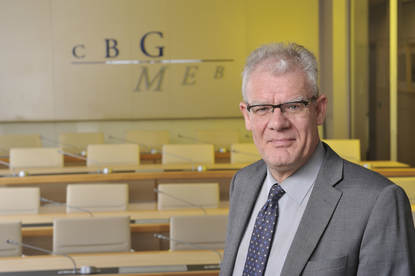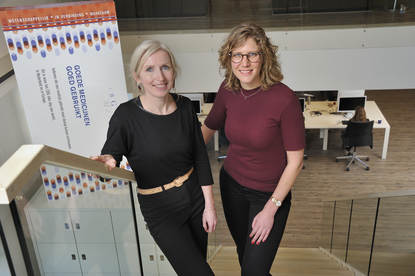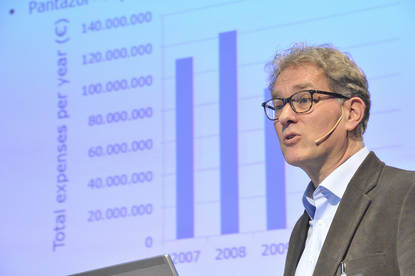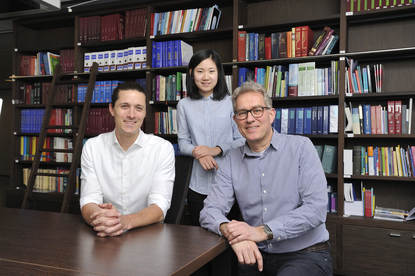The Botanicals and Novel Foods Unit has two assessment tasks. First, the assessment of the medicines groups herbal, homoeopathic and anthroposophic medicines. Second, under the regulations for foods, the assessment of the safety of novel foods. The Medicines Evaluation Board decides on the applications for medicines and the Ministry of Health, Welfare and Sport is responsible for the approval of novel foods. The Botanicals and Novel Foods Unit staff members represent the Netherlands in a wide range of European bodies, such as the Committee on Herbal Medicinal Products of the EMA, the Task Force for Novel Foods in Brussels and several expert groups at the European Pharmacopoeia in Strasbourg.
Herbal medicinal products and Homeopathica
The number of authorised herbal medicines based on traditional use rose by six in 2017. This brings the total to 54. Compared to other EU Member States, the Netherlands occupies a middle position with regard to the authorisations for herbal medicines. The Herbal Monographs established by the Committee on Herbal Medicinal Products were used as guidelines in the various procedures. In addition, two herbal medicines were authorised based on a complete dossier, of which one via a Decentralised European procedure.
The number of authorised homeopathic medicines decreased further to 2911 by the end of 2017. There is a decreasing trend in authorisations in the Netherlands in recent years. The Netherlands, together with a number of EU representatives, participated in a forum about the use of homeopathica organised by the Indian government. The European representatives strongly advocated high criteria for the quality of the herbal substances used and the safety of the preparations.
European contribution
Emiel van Galen was chosen as the vice-chair of the Committee on Herbal Medicinal Products in January 2017. The Netherlands has initiated a debate on the improvement of a more efficient decision-making in this Committee. The involvement of the MEB in establishing herbal monographs improved in 2107. The EU Member States continue to have different opinions about the acceptance of bibliographic material for herbal medicines.
The Botanicals and Novel Foods Unit was the reporter for the monograph on the quality of cannabis for medicinal use at the European Pharmacopoeia in Strasbourg. There is a lot of international interest in this topic. In addition to exchanging information with other Member States, the Unit also worked together with the Office of Medicinal Cannabis in The Hague.
Burt Kroes (Senior Assessor Botanicals and Novel Foods) was the co-organiser of the annual training course for assessors of herbal medicines at the EMA in London in December. The central theme was the increasing presence of small quantities of pyrrolizidine alkaloids in herbal products. The herbal products do not contain these harmful substances naturally; therefore, measures in the whole EU are targeting the exclusion of contamination.
Expertise used for the European assessment of the safety of novel foods
In 2017, the staff of the Novel Foods Unit were given the extra task to support the Ministry of Health, Welfare and Sport as preparation for 1 January 2018. The European Food Safety Authority (EFSA) in Parma will be taking over the assessment of novel foods as of this date. It became clear in the course of 2017 that the extensive experience of the Dutch accessors was very useful for both the European Commission and the EFSA. The compiling of the European Union list of authorised novel foods was an important project that was realised with the expertise of the Novel Foods Unit. Dutch assessors participated in a network meeting at the EFSA in November about the national experience for the assessment of new applications. The Novel Foods Unit delivered an impressive performance at the end of 2017 by transferring its knowledge and expertise and finalising all of its ongoing assessments.
As central assessments will be performed by the EFSA as from 2018, the Advisory Committee on the Safety of Novel Foods was dissolved at the end of 2017. As from the beginning of the assessment of novel foods, this committee, which first worked under the Health Council of the Netherlands and later under the MEB, played an invaluable role.
Herbal Medicinal Products Committee (HMPC)
Drs. E. van Galen (vice chair)
Dr. B.H. Kroes (alternate)
Members of the Committee on the Safety of Novel Foods (CVNV) in 2017
Prof. G.J. Mulder, chair
Dr M. Dekker
Dr E.J. Kok
Dr C.F. van Kreijl
Dr F.M. Nagengast
Dr J.M.A. van Raaij
Dr G.J.A. Speijers
Dr E.H.M. Temme
MSc A.I. Viloria-Alebesque (Ministry of Health, Welfare and Sport)
Prof. R.A. Woutersen
Prof. M.H. Zwietering









